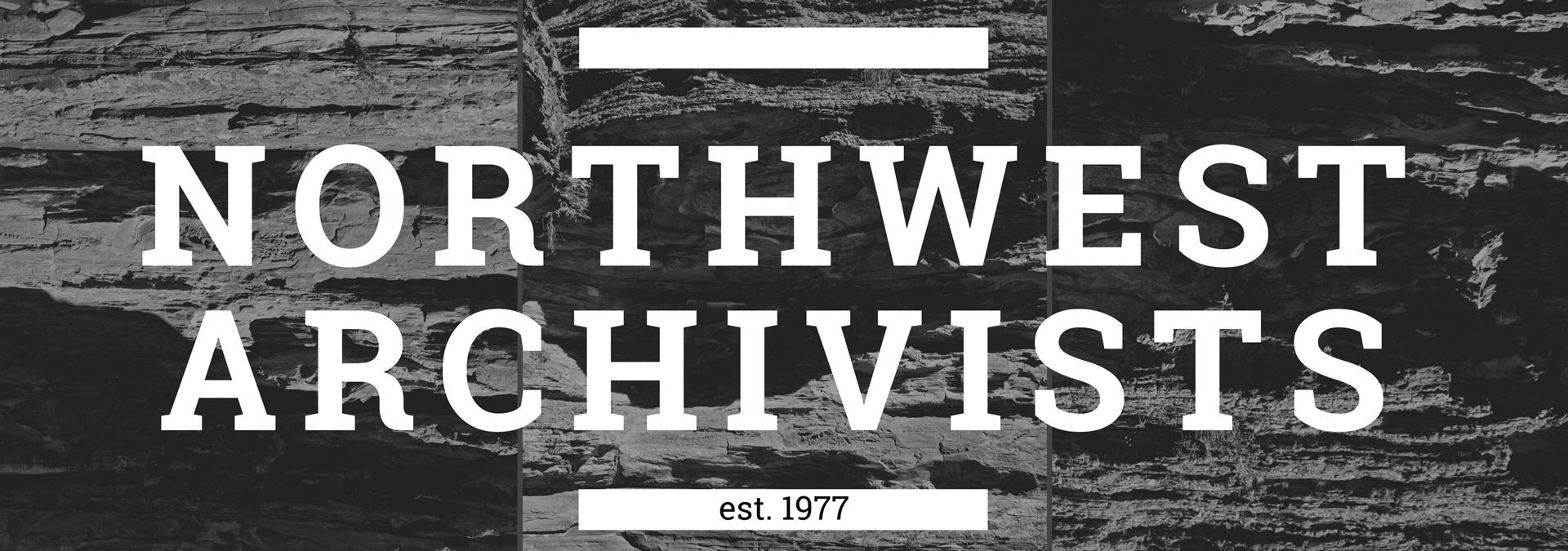Call For Session Proposals
LOOKING BACK, MOVING FORWARD
Northwest Archivists 2023 Annual Meeting
Salem, Oregon
The 2023 Program Committee seeks session proposals on all aspects of archival practice, theory, and research in broad support of the theme Looking Back, Moving Forward.
The committee welcomes proposals from anyone involved with archives or allied professions, including staff and volunteers, academics, community organizers, researchers, creators and donors, students and new professionals. Past conference evaluations indicate NWA members are particularly interested in hearing indigenous perspectives.
The Program Committee encourages proposals with session participants that identify as a BIPOC, LGBTQIA, neurodiverse and/or underrepresented community member.
Sessions will be held Thursday May 4 and Friday May 5, 2023.
As you prepare your session proposal, please review the session formats and session evaluation criteria. Need ideas? Here’s a list to facilitate session topic brainstorming. You can use this form to connect with potential co-presenters.
Ready to submit? Here is the Session Proposal Form.
Session proposal deadline is Friday December 16, 2022 at 11:59pm Pacific.
Session Formats
In your proposal you will be asked to indicate the format of your session.
All sessions will be 60 minutes in length. (A mini-workshop could cover two 60-minute sessions back-to-back).
- Standard Presentation: Two to four speakers present on a common theme. May include a moderator to steer discussion and/or introduce speakers and theme.
- Incubator Session: Designed to encourage the exploration of an idea(s). Generally, two or three short presentations on a common theme describe a project, innovation or idea in its formative stages followed by at least 40 minutes of interactive discussion and audience participation.
- Round Table Discussion: Three or four participants make very brief remarks, then discuss a topic together. Alternately, a moderator poses a series of questions to participants, which each participant addresses.
- Lightning Talks: A fast-paced open session with many concise (8 minutes or less) presentations. (Alternately, a chair may propose a PechaKucha format with 7 presenters.)
- Mini-Workshop: Consists of two to four workshop leaders who share knowledge and expertise about a particular archival topic, practice, program, technology, technique, lesson plan, or software; may be followed by smaller breakout sessions to “try things out.” (In your proposal indicate if your mini-workshop is 60 minutes or 120 minutes). [Note – propose a traditional full-day or half-day workshop using the workshop proposal form.]
- Alternative Format: Propose a format that best fits your topic. In your proposal, provide enough information for the evaluators to understand both the format and how the format will support the topic or presentation of the material.
Your format choice will not affect the Program Committee’s decision. The Committee may, however, recommend that the proposed format be changed if it believes that a different format may better serve the session’s learning objectives or intended audience.
Session Evaluation Criteria
The following criteria will inform session evaluation:
- Is the session description clear? (5 points)
- Are the session outcomes explicitly stated and achievable in the proposed session? (10 points)
- Is the subject matter timely? (10 points)
- Will a session attendee be introduced to a new practice, practical application and/or be encouraged to think in a new way about an issue or topic? (10 points)
- Does the proposal demonstrate that the presenter(s) have the requisite knowledge / experience to present on the topic? (10 points)
- Does the session provide an addition to the field in the areas of diversity, equity and inclusion. (10 points)
- Is the topic relevant to a variety of settings and institutions? (5 points)
- Does the session align closely with the conference theme? (5 points)
Session Topic Brainstorming List
The following list is provided simply to help facilitate session topic brainstorming. Any and all ideas are welcome!
- Activism and social justice – Documenting social justice and protest movements, community-based archives, archivists as advocates for or supporting social change, absences and silences in the archives
- Advocacy and outreach – Communicating value, marketing, sponsorship, engaging the community, stakeholder engagement
- Archives management – Strategic planning, project management, personnel management, program management, fundraising, grant writing
- Collaborations and partnerships – Engaging donors, working with students, colleagues in allied professions, documentation strategies, resource sharing
- Collection management – Metadata, digitization, appraisal and reappraisal, space planning
- Digital Preservation / Digital archiving – Workflows, methods, access options
- Disaster mitigation and response – Planning, responding to climate change, practicing / implementing responses
- Diversity, equity and inclusion – Reparative description, diversifying the profession, addressing legacy bias, collaborations with historically marginalized communities, inclusive spaces, cultural competence and cultural humility
- Failure stories –Experiences that can help others learn from mistakes, less than successful projects
- Innovation – Finding efficiencies, engagement strategies, process improvements, workflow management, innovative uses of tools / technologies, new approaches to hybrid work life
- Reference and instruction – Teaching collaborations, pandemic approaches to reference services, creative uses of technology
- Stewarding our profession – Creating opportunities, archival education, mentorship, supporting new professionals
